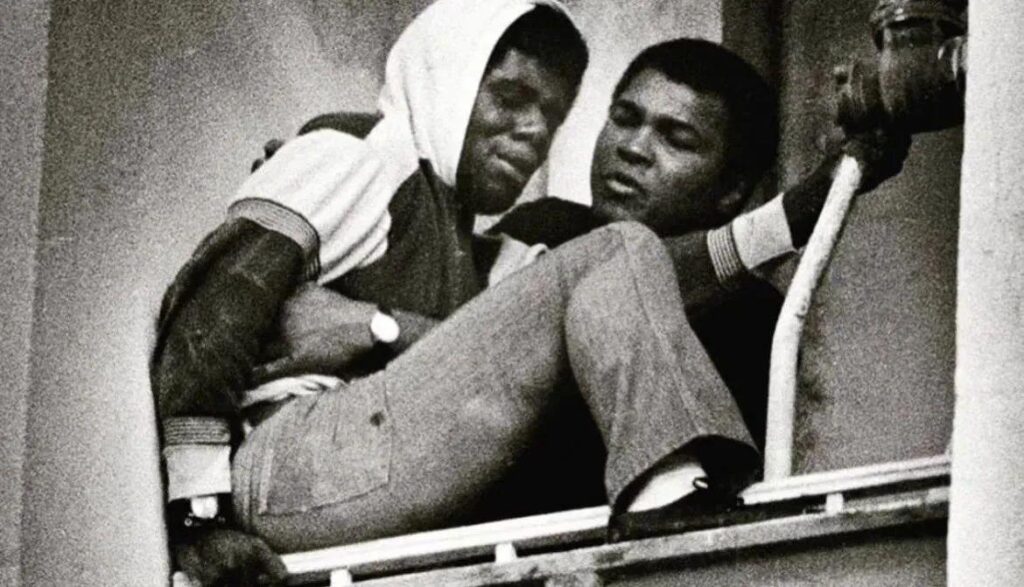
In the annals of Muhammad Ali’s storied life, there’s a lesser-known yet extraordinary chapter that unfolded on January 19, 1981, when Ali, renowned for his boxing prowess and larger-than-life personality, played an unexpected role as a real-life hero. The account, captured by The Los Angeles Times photographer Boris Yaro, sheds light on a moment where Ali’s unyielding self-belief and compassion converged.
The incident began with reports of a suicidal individual named “Joe,” perched precariously on an office-building fire escape in Los Angeles. The crowd below goaded him, and the situation seemed dire. Ali’s best friend, Howard Bingham, who was present at the scene, promptly called the boxing legend, who lived nearby.
Within minutes, Ali arrived in his Rolls-Royce, lights blinking. Yaro observed as Ali, in a dark suit and tie, approached the building where Joe teetered on the edge. A photograph captured the intensity of the moment, with Ali leaning out a window, calmly assessing the situation. Ali’s words echoed through the air: “You’re my brother! I love you, and I couldn’t lie to you.”
The former heavyweight champion’s intervention proved pivotal. He made his way to the fire escape, put an arm around Joe, and guided him to safety. They left the building together, eventually driving to a V.A. hospital after a brief stop at a police station.
This extraordinary act of kindness came at a time when Ali himself was facing personal struggles. Five years had passed since the brutal “Thrilla in Manila” against Joe Frazier, a fight that took a toll on Ali’s physical and mental well-being. The encounter with Larry Holmes in 1980 had left him battered, and Parkinson’s disease would be diagnosed in three short years.
Ali’s capacity for compassion, evident in the ledge incident, reflected not only his need for constant attention but also his genuine desire to help others. His self-belief, present throughout his life, made him a symbol for various causes—be it black pride, protest strength, or anti-war sentiments.
While the narrative might seem straightforward, additional details emerged. Joe, initially thought to be a disturbed Vietnam veteran, turned out to be a 21-year-old too young to have served in the war. Despite the complexities, Ali, driven by both his narcissism and a genuine capacity for kindness, pledged to support Joe by providing clothes and traveling with him to Michigan.
Reflecting on Ali’s actions, former Times reporter Robert Lipsyte noted, “In some sort of ways, he talked a lot of people off the ledge… He made people brave. That’s what he did.” Muhammad Ali’s heroism on that day went beyond the boxing ring, leaving an indelible mark on the life of a stranger in need.
Leave a Reply